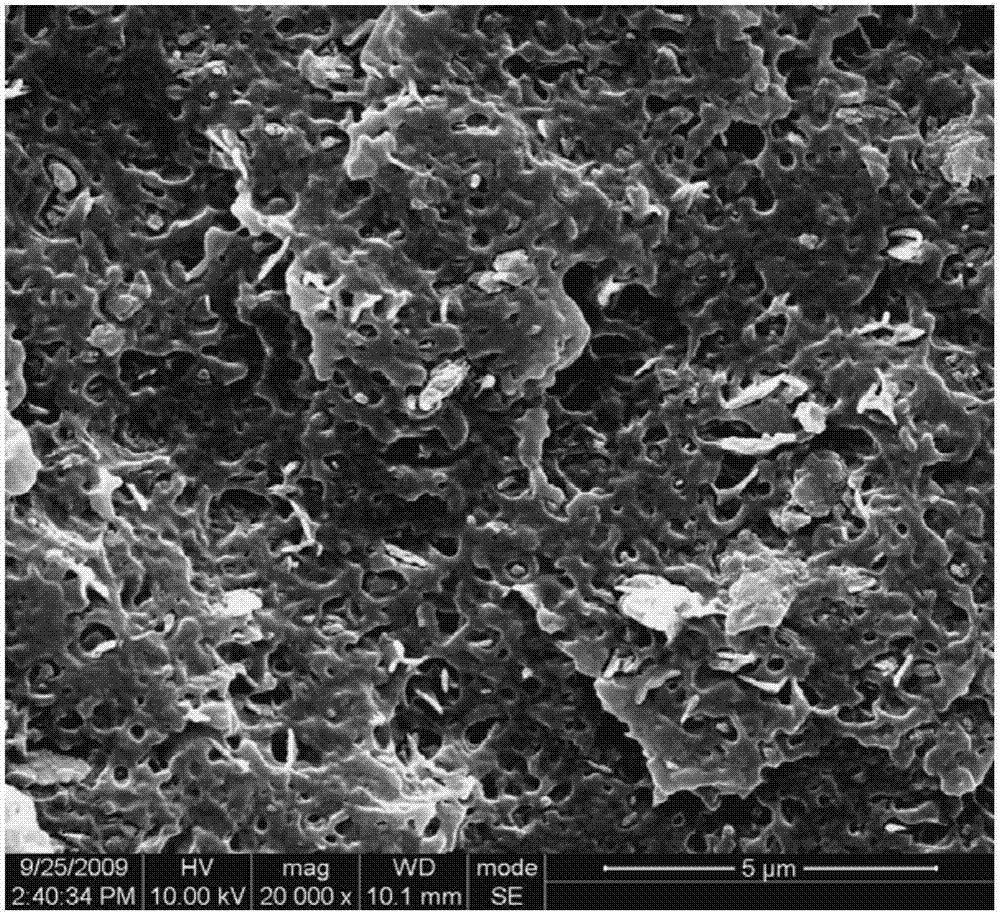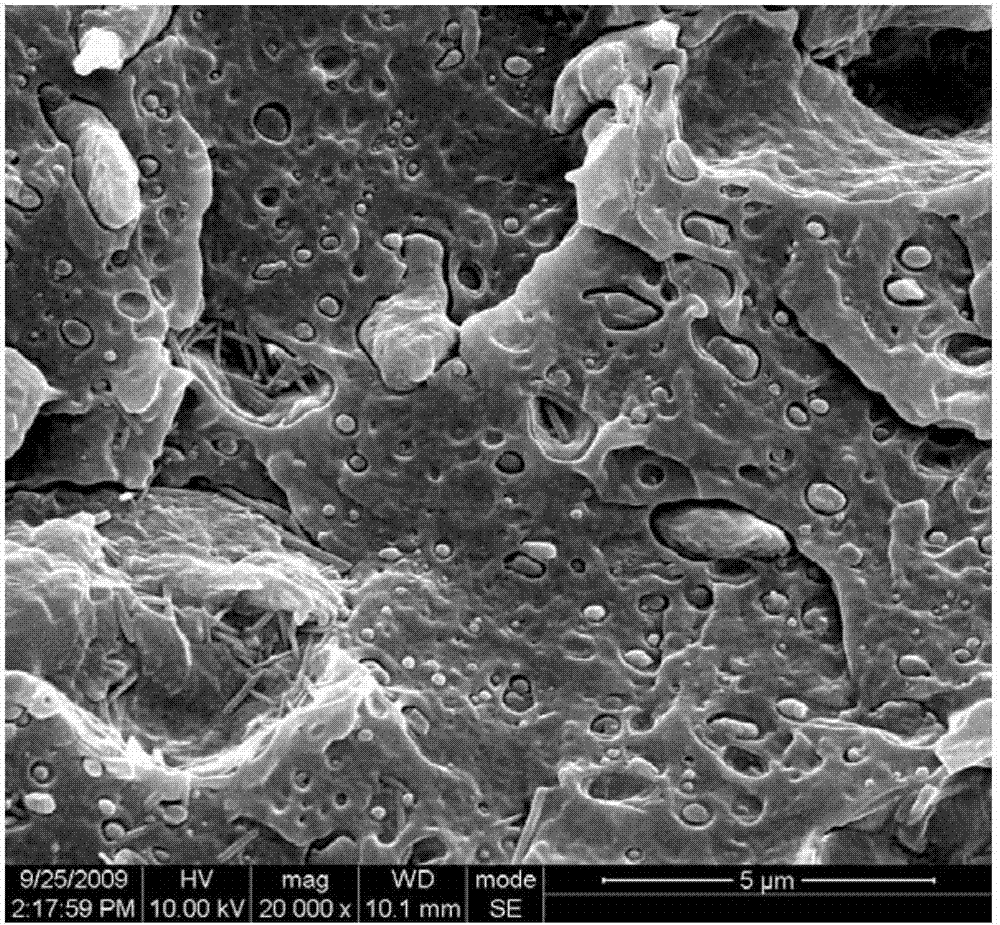A kind of polyvinyl chloride toughened reinforced masterbatch and its preparation method and application
A technology of toughening and reinforcing masterbatch and polyvinyl chloride, which is applied in the field of polymer material processing, can solve the problems of difficult twin-screw extrusion melt intercalation technology, ineffective dispersion of mineral phases, and weak interfacial interaction force, etc., to achieve Good synergistic toughening effect, easy to realize, and simple preparation method
- Summary
- Abstract
- Description
- Claims
- Application Information
AI Technical Summary
Problems solved by technology
Method used
Image
Examples
Embodiment 1
[0048] The preparation method of polyurethane: according to the formulation design of the hard segment ratio design value of 45% in Table 1, the measured PCL is placed in a polytetrafluoroethylene reactor, and the measured MDI is stirred for 30 minutes at a temperature of 50 ° C. Slowly drop it into the polytetrafluoroethylene reaction kettle, stir for 30 minutes at a temperature of 60°C (if the reaction rate is too fast, add acetone dropwise to reduce the viscosity), and then react with the polytetrafluoroethylene under stirring conditions. Add a measured amount of chain extender 1,4-BDO into the kettle, stir and react for 30 minutes at a temperature of 70°C, and finally place the reacted product in a polytetrafluoroethylene tray, and ripen it for 4 hours at a constant temperature of 110°C to obtain Polyurethane.
Embodiment 2
[0050] The preparation method of polyurethane: according to the formulation design of the hard segment ratio design value of 50% in Table 1, the measured PCL is placed in a polytetrafluoroethylene reactor, and the measured MDI is stirred for 20 minutes at a temperature of 60 ° C. Slowly drop into the polytetrafluoroethylene reaction kettle, stir for 20min at a temperature of 70°C (if the reaction rate is too fast, acetone can be added dropwise to reduce the viscosity), and then react with the polytetrafluoroethylene under stirring conditions. Add a measured amount of chain extender 1,4-BDO into the kettle, stir and react at 80°C for 20 minutes, and finally place the reacted product in a polytetrafluoroethylene tray, and mature it at a constant temperature of 130°C for 2 hours to obtain Polyurethane.
Embodiment 3
[0052] The preparation method of polyurethane: according to the formulation design of the hard segment ratio design value of 55% in Table 1, the measured PCL is placed in a polytetrafluoroethylene reactor, and the measured MDI is stirred for 25 minutes at a temperature of 55 ° C. Slowly drop it into the polytetrafluoroethylene reaction kettle, stir for 25 minutes at a temperature of 65°C (if the reaction rate is too fast, acetone can be added dropwise to reduce the viscosity), and then react with the polytetrafluoroethylene under stirring conditions. Add a measured amount of chain extender 1,4-BDO into the kettle, stir and react for 25 minutes at a temperature of 75°C, and finally place the reacted product in a polytetrafluoroethylene tray, and mature it for 3 hours at a constant temperature of 120°C to obtain Polyurethane.
PUM
| Property | Measurement | Unit |
|---|---|---|
| tensile strength | aaaaa | aaaaa |
| impact strength | aaaaa | aaaaa |
| tensile strength | aaaaa | aaaaa |
Abstract
Description
Claims
Application Information
 Login to View More
Login to View More - Generate Ideas
- Intellectual Property
- Life Sciences
- Materials
- Tech Scout
- Unparalleled Data Quality
- Higher Quality Content
- 60% Fewer Hallucinations
Browse by: Latest US Patents, China's latest patents, Technical Efficacy Thesaurus, Application Domain, Technology Topic, Popular Technical Reports.
© 2025 PatSnap. All rights reserved.Legal|Privacy policy|Modern Slavery Act Transparency Statement|Sitemap|About US| Contact US: help@patsnap.com



